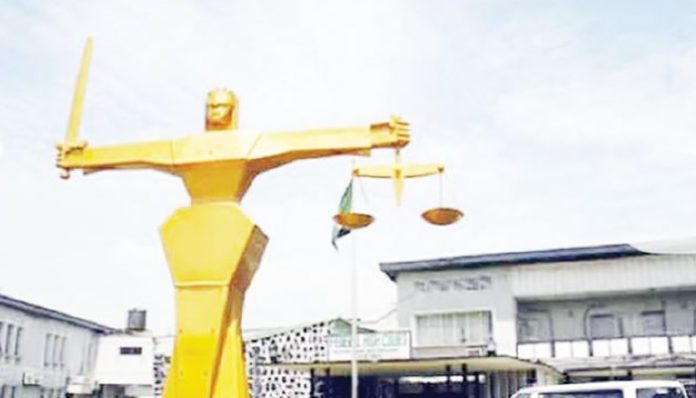SECTION 230 (1) of the 1999 Constitution of the Federal Republic of Nigeria (as amended) clearly provides for a Supreme Court of Nigeria, while Section 233 (1) of the Constitution vests the Apex Court with the exclusive jurisdiction to hear and determine appeals from the Court of Appeal.
As the apex court of the land, its decisions are final and binding on the parties involved and not subject to further appeal. This enormous responsibility undoubtedly places a heavy burden on the court in the chain of our justice delivery system.
As the court of last resort in the land, the Supreme Court is expected not only to manifestly dispense justice anchored on fairness, equity, and good conscience but also to do so in a timely manner, as justice delayed is often tantamount to justice denied.
Unfortunately, the experience of appellants to the apex court is largely one of saddening delays before their cases are resolved. To many citizens, the rather unimpressive speed of the apex court in determining appeal cases is attributed to a shortage of manpower, the centralisation of the court, among other factors.
To address this problem, the National Assembly is considering legislative measures aimed at decentralising the apex court by establishing divisions across the country, akin to the Federal High Court. We wholly support this move, which holds the promise of fast-tracking justice delivery and administration, particularly at the apex court level.
For instance, if decentralised, the Supreme Court would be able to distribute the many cases currently piling up before it across various divisions, leading to the natural and direct consequence of speedy dispensation of justice.
Additionally, decentralisation will create opportunities for more eminent, tested, and trusted jurists to contribute to the apex platform of our justice delivery system and significantly expand the frontiers of our jurisprudence.
While decentralisation and the appointment of more justices to oversee the various divisions of the apex court do not automatically guarantee speed and efficiency, we believe that with maximum dedication to duty, patriotic zeal, transparent honesty, and professionalism from the judges, decentralisation will achieve the desired goal of landmark justice delivery at the highest level.
This can be achieved if the relevant authorities, particularly the National Judicial Council (NJC), meticulously search for practitioners with proven track records, integrity, and sincerity of purpose to manage the various divisions of a restructured Supreme Court of Nigeria.
Furthermore, appellants outside Abuja are likely to experience financial relief as well as freedom from the hazards of road or air travel to and from the Federal Capital Territory (FCT), which are currently associated with pursuing appeal cases. It is our firm belief that a decentralised Supreme Court of Nigeria will align with global best practices and the dictates of modernity, given the workload currently borne by the apex court.
The justice delivery system of any nation is dynamic and never static; hence, restructuring, driven by the inevitable need for effective, timely, and efficient administration of justice, cannot be overemphasised.
We do not even need to borrow ideas from other climes before taking proactive measures to embark on this crucial restructuring of our apex court for optimum performance. Nor are we persuaded by arguments that traditionally, the apex court should not be decentralised.
This position is untenable because, as the immutable Lord Denning (MR) stated in Parker v Parker: “If we never do anything which has not been done before, we shall never get anywhere. The law will stand still whilst the rest of the world goes on, and this will be bad for both.”


